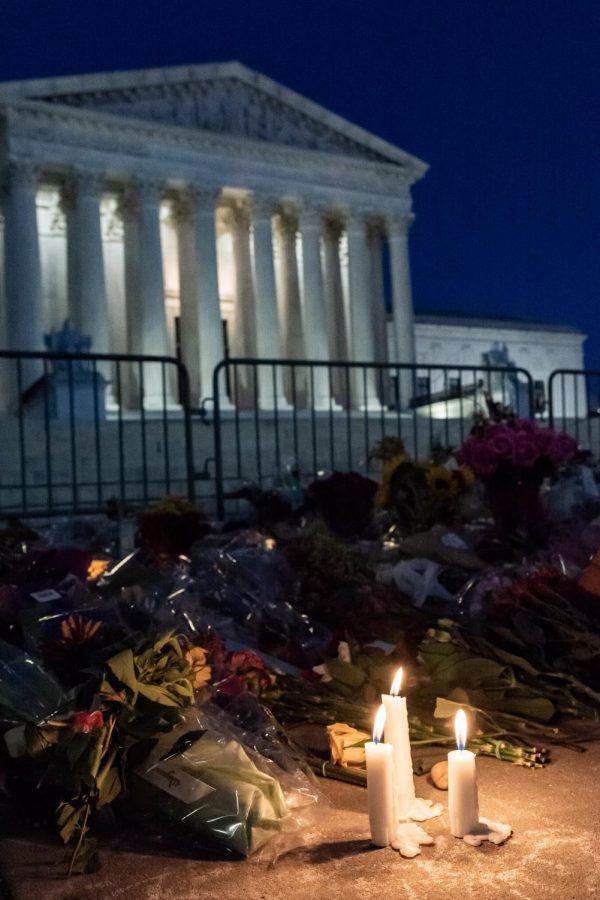Opinion: ACB Is Polar Opposite Of RBG
Controversial Confirmation Of Supreme Court Justice Amy Coney Barrett doesn’t bode well for future
Photo by Gayatri Malhotra on Unsplash
Washington D.C. mourned the loss of late Supreme Court Justice Ruth Bader Ginsburg into early November. Her replacement, Amy Coney Barrett, remains controversial due to the proximity of her appointment to the Presidential election.
As of Oct. 26, 2020, Justice Amy Coney Barrett has been confirmed into the supreme court, taking the seat of late Justice Ruth Bader Ginsburg.
Ginsburg was dubbed the “Notorious RBG” for her passionate outspoken advocacy towards civil rights and equality, something Barrett isn’t nearly as fond of. Barrett is no replacement for Ginsburg because she has shown that she is neither a strong protector of women’s rights nor an ally of the LGBTQ+ community.
Ginsburg was a key vote in granting same-sex marriage in 2014, and a trailblazer for the LGBTQ+ community. In 1996 she took on the case of Romer v. Evans, which was a landmark case that struck down a Colorado voter initiative that would have stripped lesbians and gays of civil rights protection. Justice Ginsburg was on the winning side and deemed it unconstitutional.
Barrett, however, has said in interviews that she believes marriage is between a man and a woman.
Although Barrett has said that she will not infringe on the rights of same-sex marriage, it still raises concerns for how she will rule on other LGBTQ+ civil rights issues.
Title IX is a law that protects people in educational programs and activities based on sex and receives federal funding. In a 2016 lecture, Barrett said she thought that applying Title IX to trans women would be a stretch, signaling that she is not in favor of trans women being protected under federal law. In the same lecture, she misgendered transgender women calling them “physiological male.”
If Barrett can’t respect a transgender woman’s identity in a university lecture, she can’t be expected to protect her in a court of law.
Along with LGBTQ+ rights, Justice Ginsburg fought for women’s rights to choose, she argued that women should serve on juries and overall expanded rights for women. Just 24 years ago, state-funded schools did not have to admit women even though they paid taxes funding their sexist values. Justice Ginsburg deemed it unconstitutional, and further changes were made.
Barrett in contrast has had a bad track record when it comes to protecting women’s rights.
In 2013, a guard at the Milwaukee County jail raped a 19-year-old pregnant inmate multiple times, which caused her to go into preterm labor. The woman won $6.7 million through a lawsuit against the country, which Barrett and the Seventh Circuit Court of Appeals overturned.
With Barrett denying the woman the money, the least she deserves after such a traumatic experience, she stood with the county that refused to take responsibility for horrendous abuse.
Barrett remains tight-lipped about her stance on a woman’s right to choose. During her confirmation hearing, she refused to answer questions about her stance on controversial topics, saying it wouldn’t be appropriate to reveal in advance.
However, Trump has signaled in the past that his Supreme Court picks would be against abortions.
“The justices that I am going to appoint will be pro-life. They will have a conservative bent,” Trump said in 2016.
Giving the government control over women’s bodies is not protecting women’s rights.
Justice Barrett doesn’t need to be the next “Notorious RBG,” but simply to spend a fraction of her time fighting for what the majority of American women need, which is to protect our right to choose, to fight for equality across our nation, and to break down barriers.

Virgo
What is your favorite dessert?
Apple pie with ice cream
Top 3 bands...
Her's, Lana Del Rey and Travis Scott



